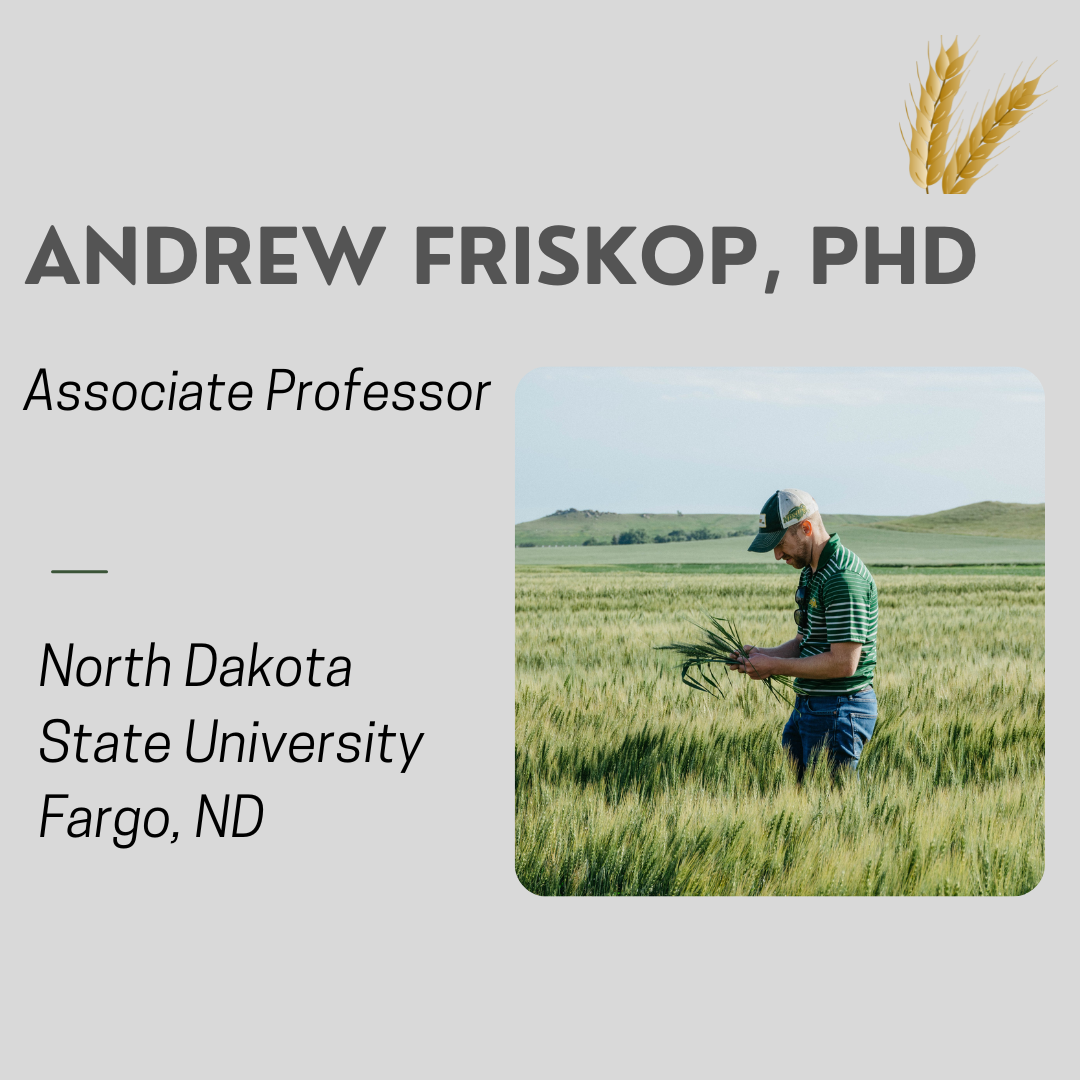Featured Researcher Bio - Andrew Friskop 2024

Meet Andrew Friskop, associate professor and extension plant pathologist of cereal diseases in the Department of Plant Pathology at North Dakota State University. Friskop has been a PI with the USWBSI since 2013. His research project in the Integrated Management (IM) Coordinated project looks at the use of fungicides and variety resistance as methods for mitigating FHB in spring barley, spring durum, and hard red spring wheat.
Developing Agricultural Research Experience Early On
Friskop grew up in the small town of Hankinson, North Dakota where agriculture is a vital component of the community. His father was a high school science teacher, leading a successful and nationally recognized science fair program. As a result, he gained research experience early on with his high school science fair projects already focused on applied agriculture research with several on hard red spring wheat.
He attributes his journey of becoming a plant pathologist to Marcia McMullen. As an undergraduate seeking a degree in crop and weed sciences at North Dakota State University (NDSU), McMullen hired Friskop to be an integrated pest management field scout in 2008 and encouraged him to become a graduate student. He took her advice and received his doctorate degree in plant pathology also at NDSU. Through her mentorship, she fostered Friskop’s passion for conducting applied research and communicating the results to relevant stakeholders.
Providing Extension Driven Research with a Team Mindset
For the past 11 years, Friskop has been managing a large network of IM trials in North Dakota. He consistently collaborates with Research and Extension Center (REC) colleagues at NDSU to establish research trials at eight locations throughout the state. This effort allows him to provide local data to growers in every corner of the state. Field trials also provide good stopping points for REC field days and accomplishes his goal of providing extension driven research to growers in North Dakota.
Friskop hopes that in the next 20 years we are able to harness and adapt technology to make FHB management less costly to the grower and processers. While he doesn’t believe we will ever achieve 100% control over the disease, researchers are finding ways to gradually improve management in several market classes. Over time, this will hopefully reduce the financial burden for producers, processors, and end-users.
By networking with other researchers involved in the USWBSI, Friskop is able to brainstorm new ideas for improving FHB management. He looks forward to the National Fusarium Head Blight Forum every year because it helps him connect with colleagues (and friends) from across the United States. “The team mindset of the USWBSI provides a wonderful atmosphere to exchange ideas and thoughts to improve FHB management in the USA and beyond,” said Friskop.
Building Relationships Can Spark Great Ideas
Now an associate professor, it wasn’t long ago that Friskop was a graduate student himself. His advice to students and early career professionals is to build relationships with others. “No effort is ever accomplished by a single person,” said Friskop. Networking with fellow students, introducing yourself to faculty, and speaking with growers and industry partners all help to make new connections. “You simply will never know when a conversation will spark the next great idea,” said Friskop.
For more information about Dr. Andrew Friskop's research, visit his faculty webpage.
To learn more about others in the FHB community, check out all the previous USWBSI Featured Researchers/Advocates.
